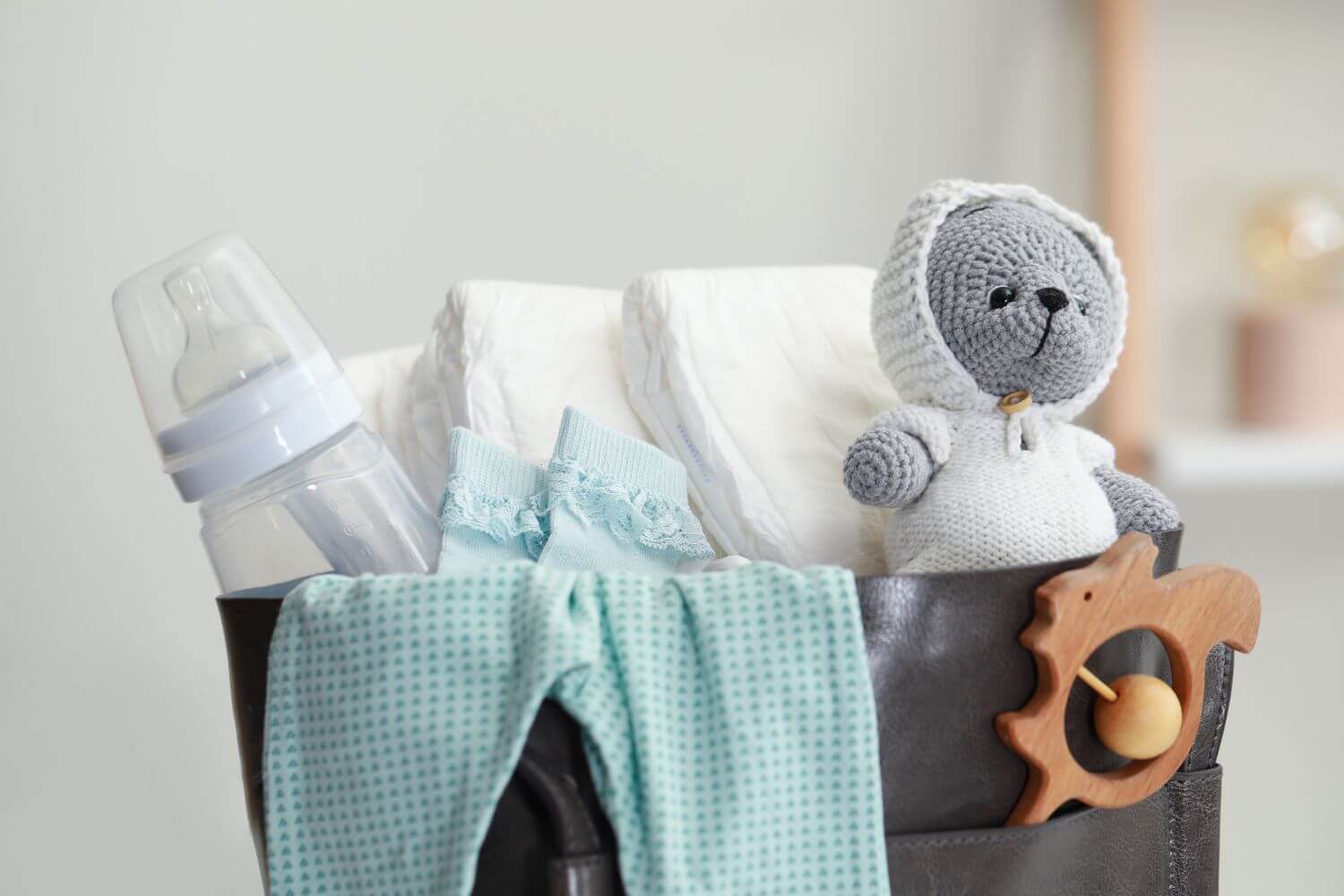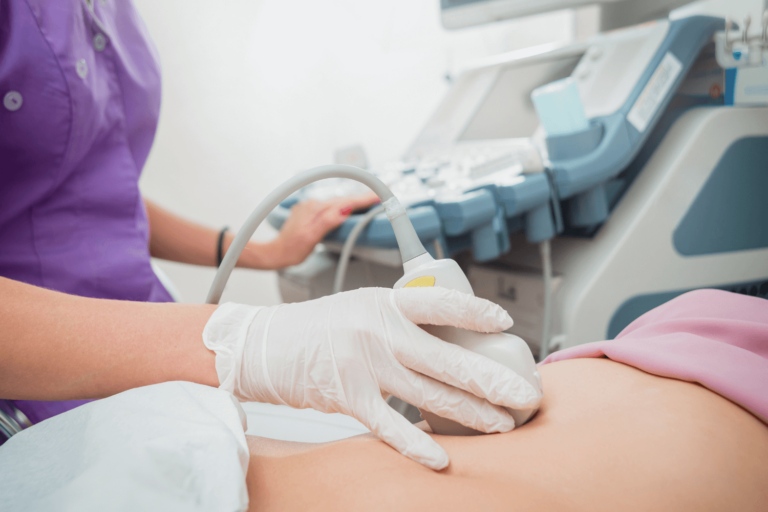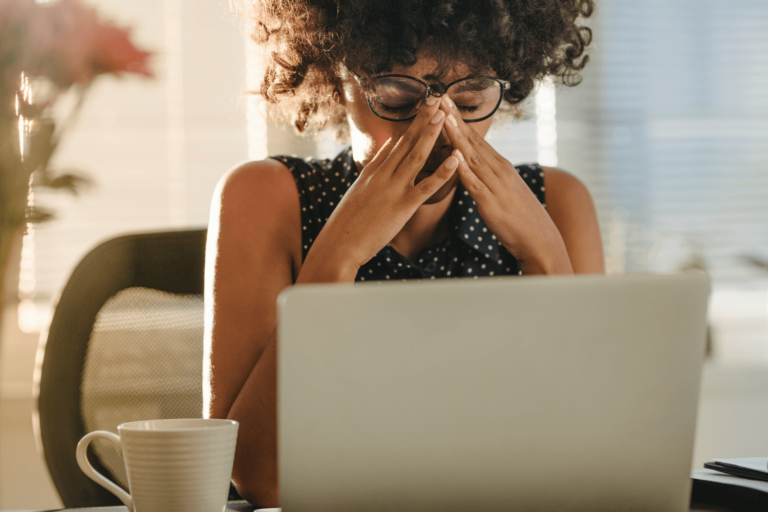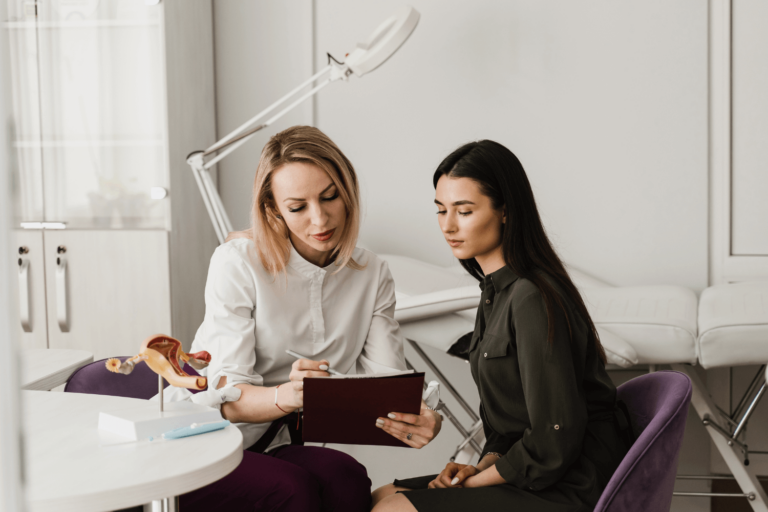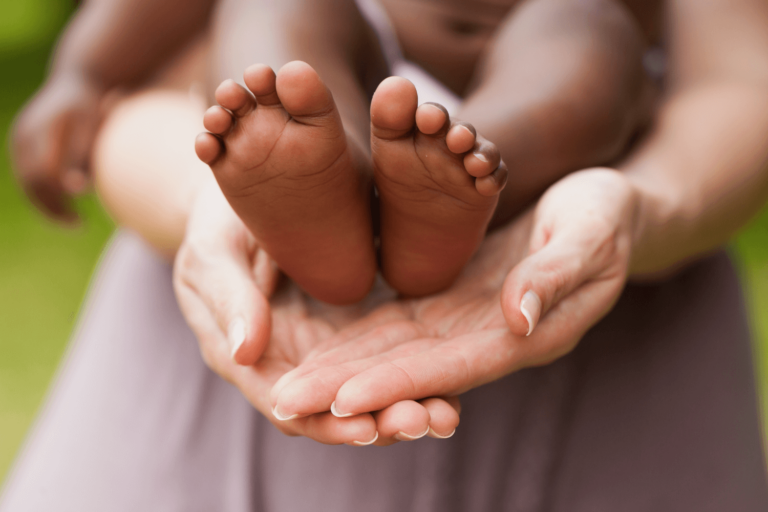Caring for a newborn can be overwhelming. Everywhere you turn there are advertisements, influencers, and blogs telling you what baby essentials to buy and how much. When you add it all up it can get expensive! The good news is that newborns don’t need as much as businesses might like you to think they do. Don’t get overwhelmed by the cost of the many gizmos and gadgets available. Instead, focus on the true needs of a newborn baby with our newborn checklist.
A Car Seat
A car seat is undeniably the first of the baby essentials you need. Even if you rarely travel by car, there will be times you’re riding along with a friend or family member and it is vital that your baby is safe. This is one piece of equipment that you should not purchase second-hand. There are many car seats available to parents. The most common type for infants is the carrier car seat. This is great for when your baby falls asleep in the car, and you want to take them in without waking them up. Additionally, it is easy to move from vehicle to vehicle.
If you rarely travel by car, you may want to consider purchasing a convertible seat. These are less convenient and sometimes more expensive, but they can be used well into the toddler years. Be aware that if a car seat has been in an accident, even if it was empty, it is unsafe to use. Also, car seats expire. If a friend or family member offers to give you a car seat you may want to consider declining and purchasing one new to ensure that it is safe to use. If affording a safe car seat is a challenge, contact your local pregnancy center. They can provide one for you or connect you with a local resource.
A Safe Place to Sleep
Babies love to sleep! Next on your newborn checklist should be a bassinet or crib for your baby to sleep in. If space and finances are tight, a miniature crib can be a great option. Bassinets and other smaller beds can be fun to have, but they’re not necessary. If your baby has a safe place to sleep, you are good to go.
Remember the ABCs of safe sleep. Your baby should sleep alone, on their back, and in a crib or bassinet that meets safety standards. Your baby should be on a firm mattress that fits snugly in the bassinet or crib without soft bedding, blankets, bumpers, or toys. The good news is that purchasing a crib, mattress, and bedding second-hand is a great way to keep your baby safe and save money on baby essentials. You can contact the crib’s manufacturer to ensure there are no recalls and request a user manual. Your local pregnancy center may be able to help you with a crib or bassinet; reach out to see what’s available.
Food
Everyone needs to eat, including your baby. Babies start with breastmilk or formula and, by about six months old, will begin adding other foods into their diet. Breastfeeding is a great way to bond with your baby and provide excellent nutrition. Breastfeeding is also very affordable.
If you’re unable to breastfeed your baby or prefer not to, then you need to provide them with formula. When mixing formula for your baby it is vital that you provide the full amount of formula they need with clean water.
Regardless of your feeding choice, you will likely need bottles and a bottle brush to help clean the bottles. If you choose to breastfeed you may want a breast pump, which is sometimes provided by insurance. If you are struggling to provide you may qualify for assistance, such as the WIC program. WIC will provide formula if you choose to formula feed and will provide food for the breastfeeding mother if you choose to breastfeed. When you deliver your baby, the hospital can connect you with a lactation consultant and other resources to get you started on your breastfeeding journey. If you don’t qualify for WIC or only need occasional formula or baby food you can check with your local pregnancy center about how they can help.
Diapers
Babies can use a lot of diapers, and diapers can be expensive! This is not only a newborn checklist item, as you will need diapers and wipes for your baby for approximately two years. However, there are options other than disposable diapers. Many mothers are now using modern cloth diapers for their babies. Cloth diapers have an up-front investment but can save money in the long run, are better for the environment, and can be gentler on baby’s skin. If you need help with diapers you contact your local pregnancy center or Catholic Charities. If you would like to cloth diaper your baby, you can contact an organization like The Cloth Option to see if they can help you get started.
Clothes
Babies need clothes, but probably not as many as you think! A small selection of onesies, footie pajamas, comfy pants, and socks will keep your baby happy and well-clothed. It can be tempting to buy a lot of baby clothes, but babies grow incredibly fast and won’t stay in them for very long. Gently used baby clothes are also often easy to find. Consignment shops, thrift stores, yard sales, and friends/family can often provide clothing that is still in great condition. Your local pregnancy center may also be able to help you with the essential baby clothing you need.
Medicine and Hygiene Items
Your baby will probably feel unwell at some point. Infant acetaminophen (Tylenol) and infant gas drops are good items to keep in your cabinet. Be sure to talk with your pediatrician about dosing and any recommendations. You will also need to add diaper rash cream, soap, and lotion to your newborn checklist. Other hygiene products that are good to have are nail trimmers, a nail file, a hairbrush or comb, and a bulb syringe. There are many options for these types of products, but babies really don’t use much. One bottle or container of each will last quite a while! Your local pregnancy center may be able to help you with these types of products.
Everything else!
Anything else you may need or want for your baby could be considered an “extra,” especially in the beginning. These items may be fun to have and can make your life easier, but when you’re thinking about baby essentials, a lot of these fun extras can be skipped or purchased when a good deal comes up.
No matter what your situation is, your local pregnancy center is there to help. Reach out to them today and ask about their parenting and material assistance program. Parenting is hard, but you don’t have to do it alone.
